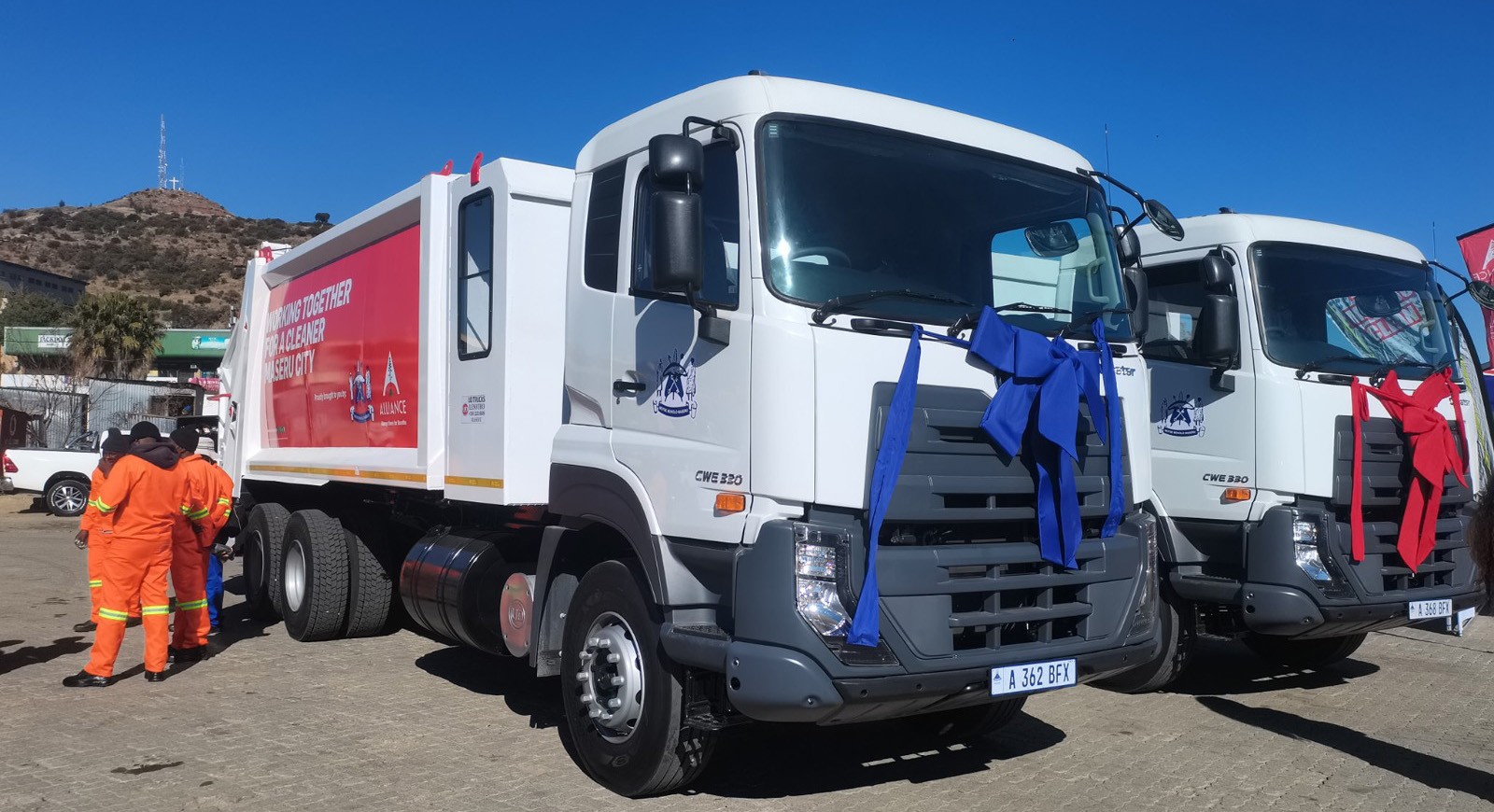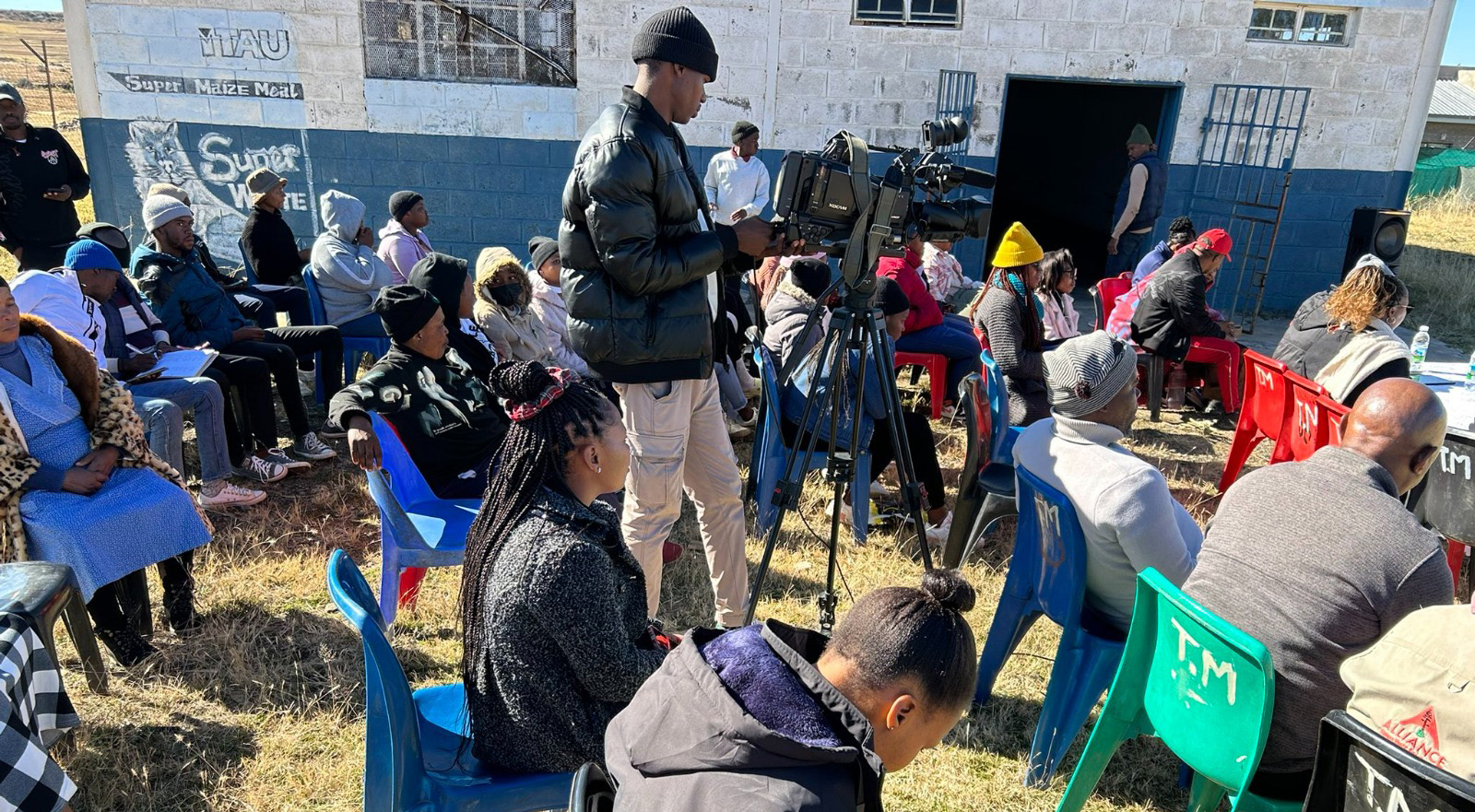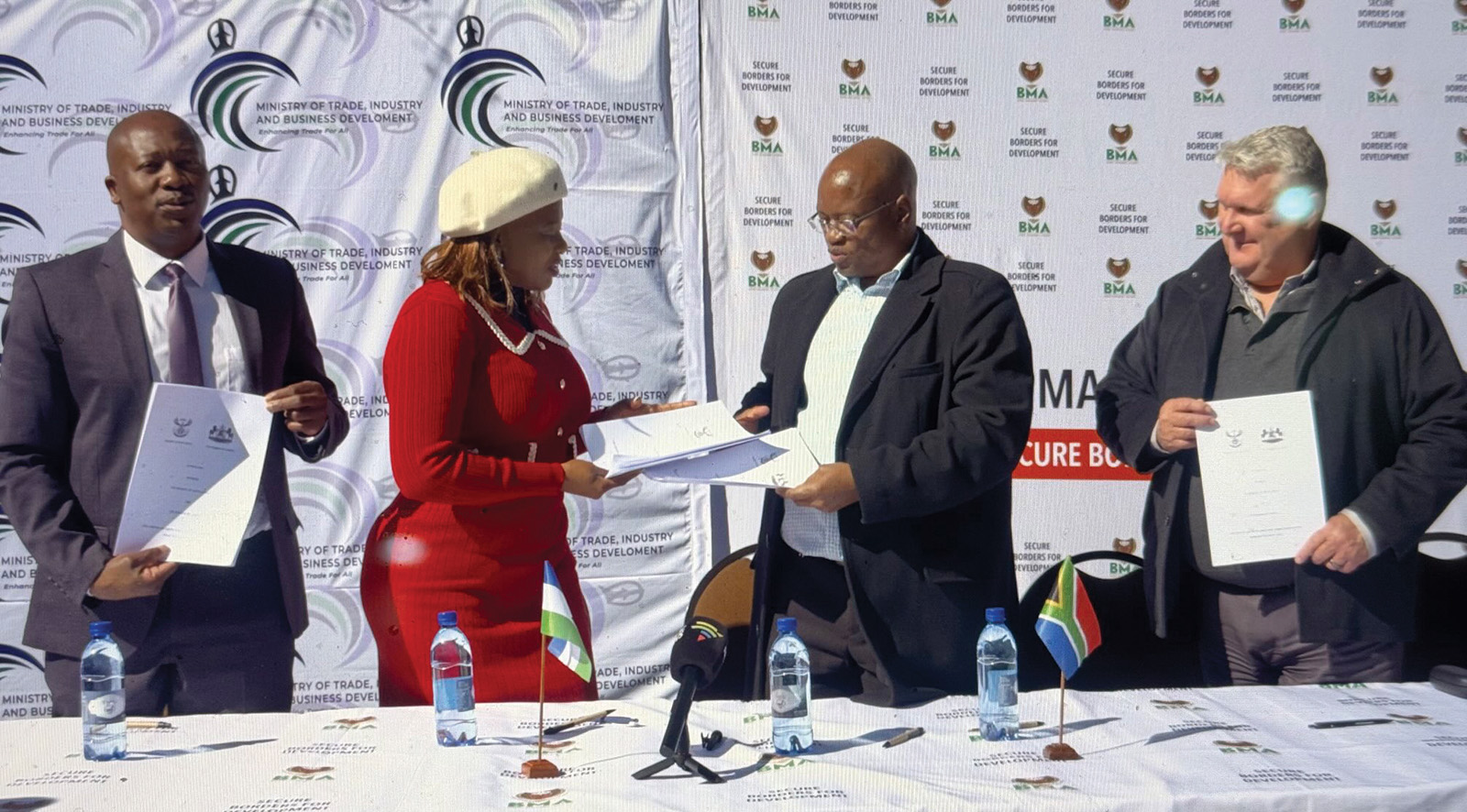Villager, Chinese firm clash over field

SHARE THIS PAGE!
‘Mantšali Phakoana
A villager from Ha Mphahama in Qacha’s Nek, Nako Pita, says he will always rue the day Chinese company Qingjian Group (CNQC) came to the area in 2018 to construct the M1.8 billion 91-kilometre tarred road from Mpiti to Sehlabathebe in Tsoelike constituency.
Ordinarily, this would be a welcome development but for Pita, the construction of the road has left him worse off.
He claims CNQC destroyed his family’s field which it has relied on for decades through farming, by turning it into ‘a quarry mine’.
What now riles him even further is that the company, which did not seek his permission, has refused to compensate him for the damage to his field since it started the project six years ago.
The Mpiti to Sehlabathebe road is one of the key infrastructure projects being undertaken jointly by the governments of Lesotho and China. It is facilitated through the Forum on China-Africa Co-operation (FOCAC).
The Export-Import (EXIM) Bank of China provided a concessional loan of M1.3 billion while the Lesotho government injected an additional M500 million.
A disgruntled Pita told theReporter in an interview that the field he inherited from his late parents was now being turned into a mining area.
“The company has been digging and crashing quarry from the area since it started its operations and by now there is no sign that there was a field. The place has been turned into a quarry mine,” he complained.
In a letter dated January 9, 2024 addressed to CNQC management, Pita is demanding M120 000 compensation.
“I am aware that during your roadworks, you have used my field without my permission. I therefore, plead to be compensated M120 000 for using that land, as early as January 12, 2024,” part of the letter reads.
According to Pita, the letter was received by CNQC coordinator, Mosehle Motosi, on January 10, 2024, a day after he sent it.
He said Motosi told him that the company would not pay him, without stating reasons.
Pita further noted that in his first attempt to claim compensation last year, Motosi had ordered him to go back home and make a written request.
He added that he works in South Africa where he spent most of his time and his expectation was that CNQC would respond to his letter by January 12, 2024 before he left.
“Motosi has been postponing to meet with me after he asked me to put my demand in writing, until I had to come back to South Africa for work.”
Pita also indicated that when he contacted Motosi to inquire about CNQC’s progress to his request for compensation, he told him that the company’s manager had travelled to Maseru and would only be informed when he gets back.
“That field was very important to me because it belonged to my late parents. My family was able to survive on it because it was very big. We used to plough maize and potatoes. I will never stop fighting for what is rightfully mine,” he vowed.
Contacted for comment this week, Motosi confirmed receiving Pita’s letter.
He noted that on January 15 this year he told Pita that the company management had asked him to report to the office to negotiate the compensation price, citing M120 000 was too much.
“The company does not have a problem paying Ntate Napo. However, the amount he is demanding is too much for that field, hence I suggested he reports to our offices so that we negotiate the price.
“I told him to come, but he said he was already in South Africa for work. We are still expecting him,” Motosi explained.
Asked why the company had not paid compensation for the field when it started the project six years ago, he said preparations were underway to do so.
In an interview with theReporter this week, Ha Mphahama chief, Mpiti Mathealira said when the company started operating, he made the CNQC management aware that the field they were crashing quarry from belonged to Pita.
Chief Mathealira said after receiving the information, the company measured the field with assurance that they would compensate the owner.
“We were hoping by now they (CNQC) would have compensated him because it has been a long time. That is why when he reported to me that he was going to claim his compensation, I endorsed his letter.
“We really appreciate that CNQC is here for a good purpose of constructing the road but they should take responsibility for the damages they cause to villagers’ land or property,” he noted.
Chief Mathealira also claimed that the company seems to take advantage of people and think it can just go away with it.
He said Pita’s field “was big” and the M120 000 compensation he is claiming was just “too small”.
“CNQC was supposed to have paid compensation as soon the owner demanded it. It is a gain for them to have the land for that amount; the owner has lost it for good. That area will no longer become a field even after the life of the project,” Chief Mathealira pointed out.
On his part, Qanya community councillor Tšepiso Sejojo said they were made aware of the matter and were hoping to intervene at a later stage should CNQC fail to compensate Pita.
“It is an obligation for every company doing projects in the country to compensate affected communities. The same goes for CNQC; it has to pay Ntate Pita for his field.
“As community leaders, we are still willing to intervene and help CNQC and Ntate Pita reach a common understanding. If Pita is not satisfied thereafter, he can take the matter to court,” Sejojo said.
He accused the company of habitually failing to work hand in hand with communities and their leaders on issues of compensation.
Public relations officer in the department of mining ‘Makananelo Motseko said the Mineral and Mining Policy, 2015 stipulates that every company operating under this industry is obliged to compensate affected communities.
However, the policy is not clear on how compensation must be made, she added.
This is not the first time CNQC has been accused of failing to compensate communities in areas that it runs projects.
Last year, the same company was accused by Ha Mphahama villagers of failing to fulfil its promise to construct two roads linking Ha Mphahama and Ha Tlali villages in Qacha’s Nek.
This publication reported that CNQC indicated that it would give the affected villagers M20.000 to construct the roads themselves.
The company only paid the money after theReporter published the story.

Communities empowered to protect environment
11 days ago
Alliance boosts MCC fleet
11 days ago
Young people discuss economic future at Taung
12 days ago
CityzeenLs nears 1 million YouTube views
13 days ago
Econet commits over M1million to Lecholi event
13 days ago

New border plan to advance regional trade
16 days ago
Foul language lands man in court
16 days ago
Youth demand action on unemployment
16 days ago
Ex-ministers threaten to sue govt
16 days ago